
Michael Kenneth Moore was a New Zealand politician, union organiser, and author. In the Fourth Labour Government he served in several portfolios including minister of foreign affairs, and was the 34th prime minister of New Zealand for 59 days before the 1990 general election elected a new parliament. Following Labour's defeat in that election, Moore served as Leader of the Opposition until the 1993 election, after which Helen Clark successfully challenged him for the Labour Party leadership.
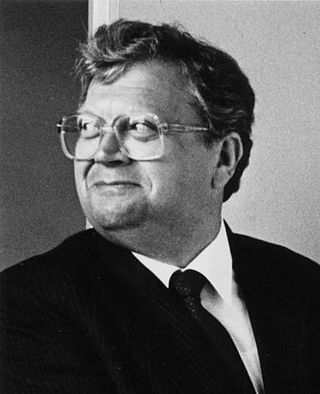
David Russell Lange was a New Zealand politician who served as the 32nd prime minister of New Zealand from 1984 to 1989.
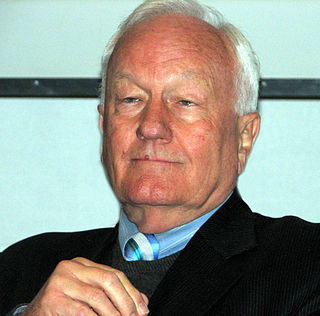
Sir Roger Owen Douglas is a retired New Zealand politician who served as a minister in two Labour governments. He became best known for his prominent role in New Zealand's radical economic restructuring in the 1980s, when the Fourth Labour Government's economic policy became known as "Rogernomics".

James Patrick Anderton was a New Zealand politician who led a succession of left-wing parties after leaving the Labour Party in 1989.
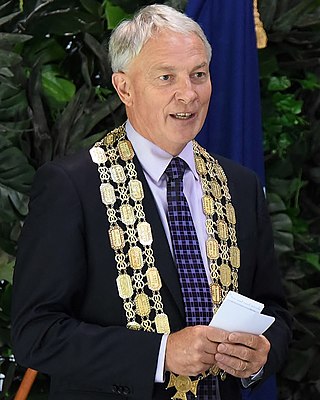
Philip Bruce Goff is a New Zealand politician and diplomat. He currently serves as High Commissioner of New Zealand to the United Kingdom since 2023. He was a member of the New Zealand Parliament from 1981 to 1990 and again from 1993 to 2016. He served as leader of the Labour Party and leader of the Opposition between 11 November 2008 and 13 December 2011.

Richard William Prebble is a former member of the New Zealand Parliament. Initially a member of the Labour Party, he joined the newly formed ACT New Zealand party under Roger Douglas in 1996, becoming its leader from 1996 to 2004.

Sir Wallace Edward Rowling, commonly known as Bill Rowling, was a New Zealand politician who was the 30th prime minister of New Zealand from 1974 to 1975. He held office as the leader of the Labour Party.

Richard John Northey is a New Zealand politician. He was an MP from 1984 to 1990, and again from 1993 to 1996. He served on the Auckland Council between 2010 and 2013, and is a member of the Labour Party.
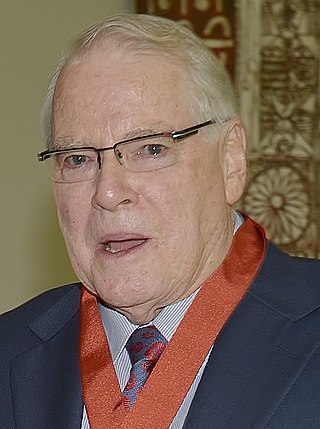
Michael Edward Rainton Bassett is a former Labour Party member of the New Zealand House of Representatives and cabinet minister in the reformist fourth Labour government. He is also a noted New Zealand historian, and has published a number of books on New Zealand politics, including biographies of Prime Ministers Peter Fraser, Gordon Coates and Joseph Ward.

Robert James Tizard was a Labour politician from New Zealand. He served as the sixth deputy prime minister, the minister of Finance, minister of Health and minister of Defence.

Cedric Russell Marshall, known as Russell Marshall, is a former New Zealand politician of the Labour Party and diplomat.
Frederick Miroslav Gerbic was a New Zealand politician of the Labour Party.
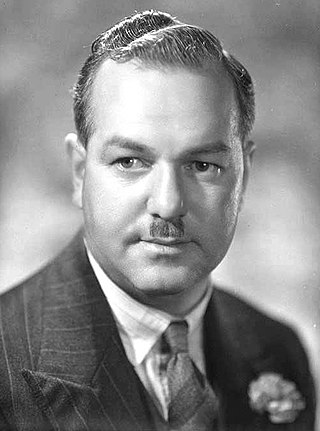
John "Jock" Skinner Stewart was a New Zealand politician of the Labour Party.

Colin James Moyle was a New Zealand politician. A member of the Labour Party, he served as a Member of Parliament (MP) from 1963 to 1976 and again from 1981 to 1990. He was a Government minister in the Third Labour and Fourth Labour Governments. He was a close confidant of Bill Rowling during Rowling's short premiership. In the Fourth Labour Government, as Minister of Agriculture, Moyle oversaw the removal of farming subsidies and the establishment of a fisheries quota system.

Peter Neilson was a New Zealand businessman and politician who was a Labour Party Member of Parliament in the New Zealand House of Representatives.
David John Butcher is a former New Zealand politician of the Labour Party. He was a Cabinet minister in the Fourth Labour Government.
On 3 February 1983, a New Zealand Labour Party leadership election was held to determine the leadership of the New Zealand Labour Party. The leadership was won by Mangere MP David Lange, who had been Deputy Leader of the party since 1979.
The 1993 New Zealand Labour Party leadership election was held to determine the leadership of the New Zealand Labour Party. The leadership was won by Mount Albert MP Helen Clark, who had been Deputy Leader of the party since 1989.
The 1990 New Zealand Labour Party leadership election was held on 4 September to determine the leadership of the New Zealand Labour Party. The leadership was won by Christchurch North MP Mike Moore.
The Backbone club was a ginger group within the New Zealand Labour Party in the late 1980s and early 1990s that advocated neoliberal economic policies and supported Roger Douglas in his financial reforms of New Zealand. Its members later became the nucleus of ACT New Zealand, a neoliberal party which Douglas founded in 1994.














